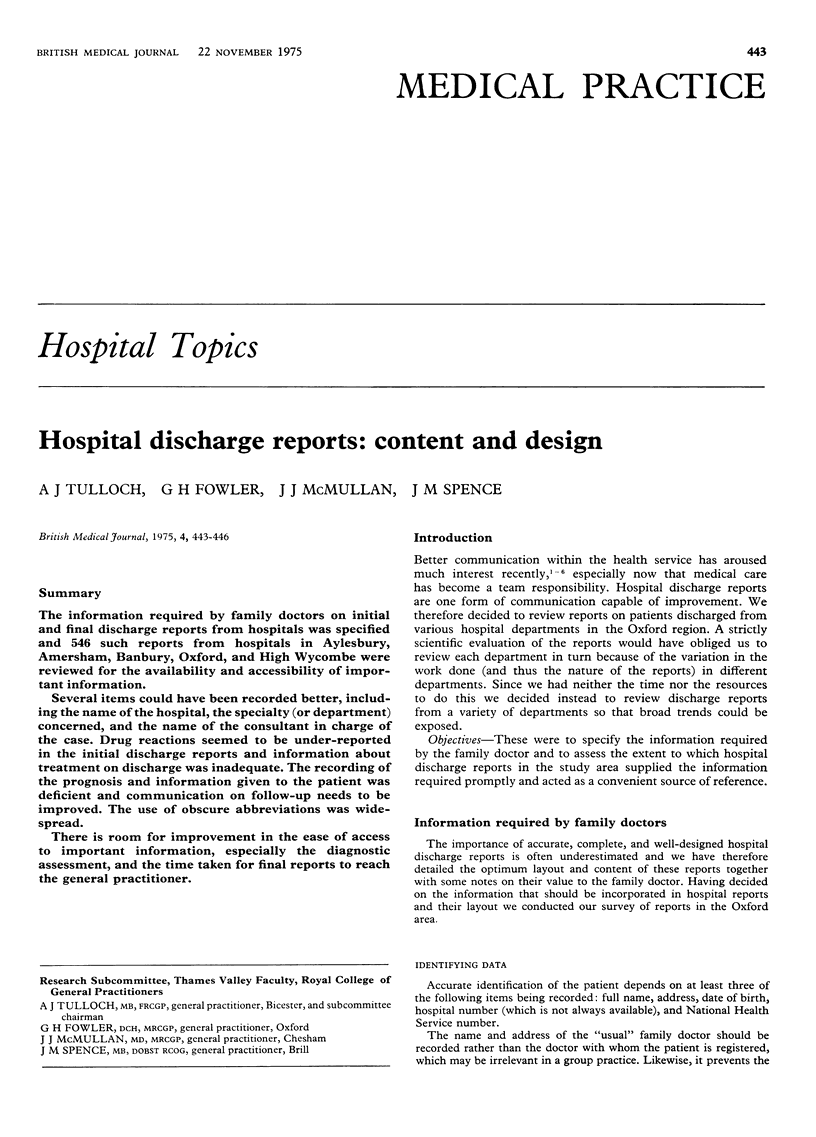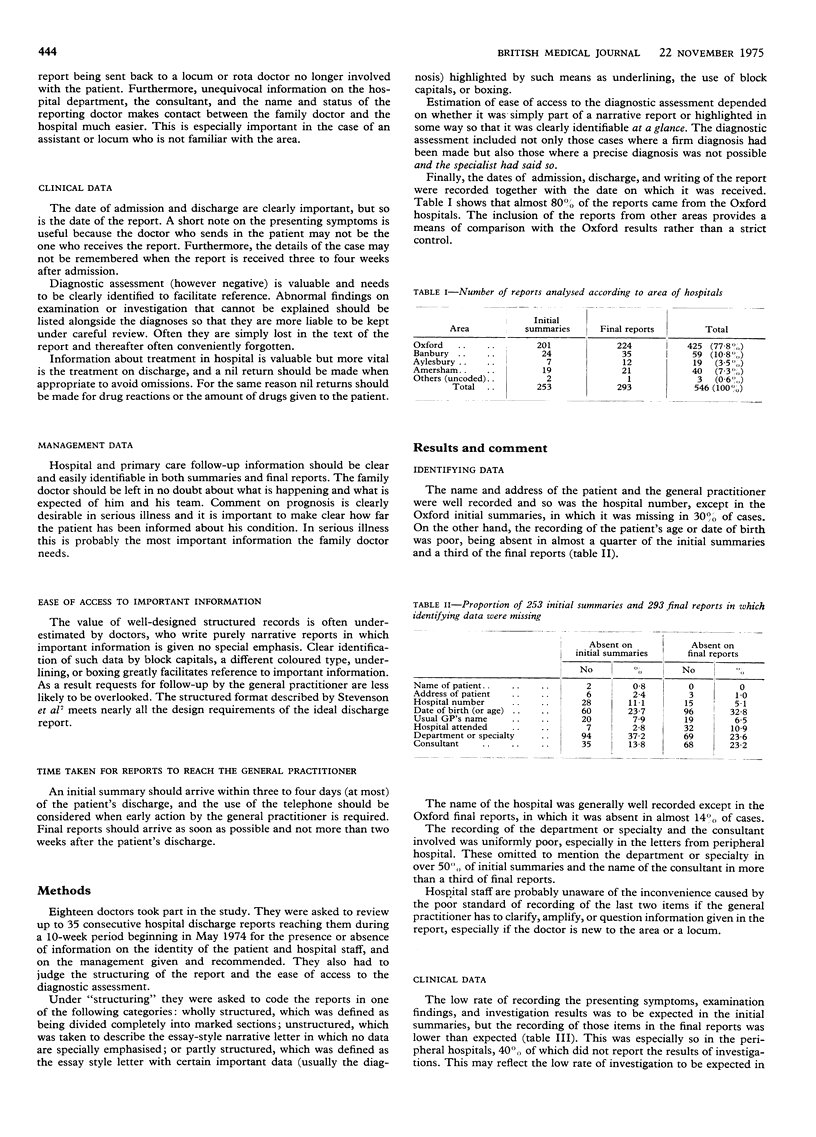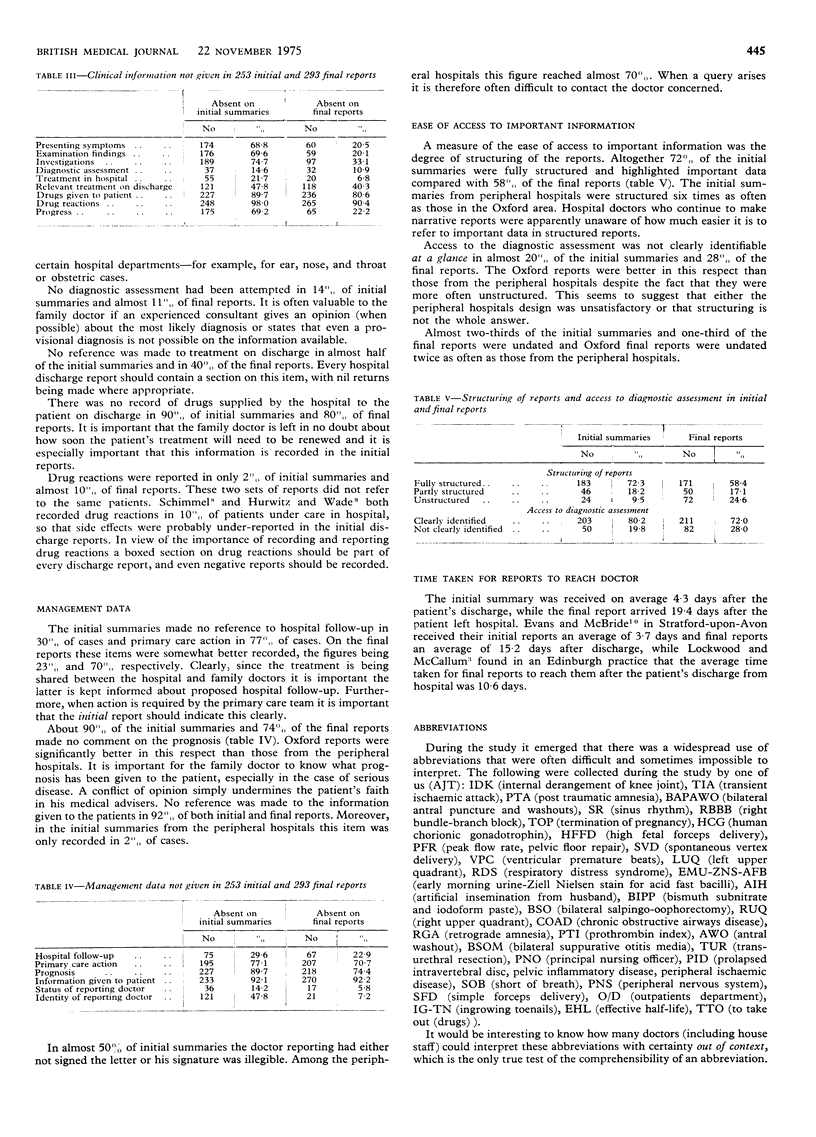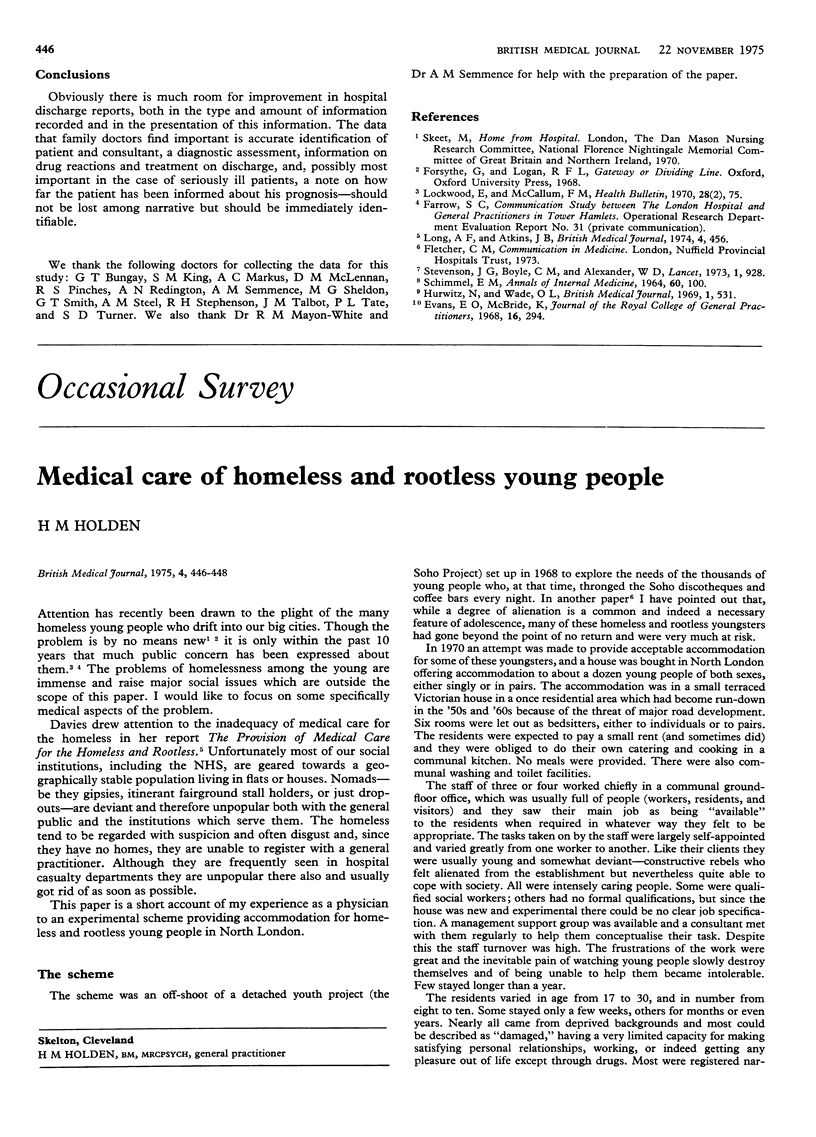Abstract
The information required by family doctors on initial and final discharge reports from hospitals was specified and 546 such reports from hospitals in Aylesbury, Amersham, Banbury, Oxford, and High Wycombe were reviewed for the availability and accessibility of important information. Several items could have been recorded better, including the name of the hospital, the specialty (or department) concerned, and the name of the consultant in charge of the case. Drug reactions seemed to be under-reported in the initial discharge reports and information about treatment on discharge was inadequate. The recording of the prognosis and information given to the patient was deficient and communication on follow-up needs to be improved. The use of obscure abbreviations was widespread. There is room for improvement in the ease of access to important information, especially the diagnostic assessment, and the time taken for final reports to reach the general practitioner.
Full text
PDF



Selected References
These references are in PubMed. This may not be the complete list of references from this article.
- Evans E. O., McBride K. Hospital usage by a group practice. A trainer-trainee study. J R Coll Gen Pract. 1968 Oct;16(4):294–306. [PMC free article] [PubMed] [Google Scholar]
- Lockwood E., McCallum F. M. Patients discharged from hospital: an aspect of communication in the Health Service. Health Bull (Edinb) 1970 Apr;28(2):75–80. [PubMed] [Google Scholar]
- Long A., Atkins J. B. Communications between general practitioners and consultants. Br Med J. 1974 Nov 23;4(5942):456–459. doi: 10.1136/bmj.4.5942.456. [DOI] [PMC free article] [PubMed] [Google Scholar]
- SCHIMMEL E. M. THE HAZARDS OF HOSPITALIZATION. Ann Intern Med. 1964 Jan;60:100–110. doi: 10.7326/0003-4819-60-1-100. [DOI] [PubMed] [Google Scholar]
- Stevenson J. G., Boyle C. M., Alexander W. D. A new hospital discharge letter. Lancet. 1973 Apr 28;1(7809):928–931. doi: 10.1016/s0140-6736(73)91378-0. [DOI] [PubMed] [Google Scholar]


